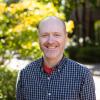Highly multiplexed simultaneous detection of RNAs and proteins in single cells. Nature Methods. 2016.
Frei A.P.*, Bava F.A.*, Zunder E.R., Hsieh E.W., Chen S.Y., Nolan G.P., Gherardini P.F. *contributed equally
A dynamic immune system reference map: system-wide organization with functional correlates. Science. 2015.
Spitzer M.H.*, Gherardini P.F.*, Fragiadakis G.K., Bhattacharya N., Yuan R.T., Hotson A.N., Finck R., Carmi Y., Zunder E.R, Fantl W.J., Bendall S.C., Engleman E.G., Nolan G.P. *contributed equally
Data-Driven Phenotypic Dissection of AML Reveals Progenitor-like Cells that Correlate with Prognosis. Cell. 2015.
Levine JH*, Simonds EF*, Bendall SC*, Davis KL, Amir ED, Litvin O, Fienberg H, Jager A, Pinkus L, Zunder ER, Finck R, Gedman AL, Radtke I, Downing JR, Pe’er D, Nolan GP. *contributed equally
Early regulators of iPSC reprogramming identified by a novel set of transient intermediates. Nature. 2015.
Kujan E*, Zunder ER*, Nolan GP, Wernig M. *contributed equally
A Continuous Molecular Roadmap to iPSC Reprogramming Through Progression Analysis of Single Cell Mass Cytometry. Cell Stem Cell. 2015.
Zunder ER*, Lujan E*, Goltsev Y, Wernig M, and Nolan GP. *contributed equally
Palladium-based Mass-Tag Cell Barcoding with a Doublet-Filtering Scheme and Single Cell Deconvolution Algorithm. Nature Protocols. 2015.
Zunder ER*, Finck R*, Behbehani GK, Amir ED, Krishnaswamy S, Gonzalez VD, Lorang CG, Bjornson Z, Spitzer MH, Bodenmiller B, Fantl WJ, Pe’er D, Nolan GP. *contributed equally
"Transient partial permeabilization with saponin enables cellular barcoding prior to surface marker staining." Cytometry Part A. 2014.
Behbehani GK, Thom C, Zunder ER, Finck R, Gaudilliere B, Fragiadakis GK, Fantl WJ, Nolan GP.
"Multiplexed mass cytometry profiling of cellular states perturbed by small-molecule regulators." Nature Biotechnology. 2012.
Bodenmiller B*, Zunder ER*, Finck R*, Chen TJ, Savig ES, Bruggner RV, Simonds EF, Bendall SC, Sachs K, Krutzik PO, Nolan GP. *contributed equally
"Dual blockade of lipid and cyclin-dependent kinases induces synthetic lethality in malignant glioma." Proceedings of the National Academy of Sciences, USA. 2012.
Cheng CK, Gustafson WC, Charron E, Houseman BT, Zunder ER, Goga A, Gray NS, Pollok B, Oakes SA, James CD, Shokat KM, Weiss WA, Fan QW.
"Discovery of drug-resistant and drug-sensitizing mutations in the oncogenic PI3K isoform p110alpha." Cancer Cell. 2008.
Zunder ER, Knight ZA, Houseman BT, Apsel B, Shokat KM.
"A pharmacological map of the PI3-K family defines a role for p110alpha in insulin signaling." Cell. 2006
Knight ZA, Gonzalez B, Feldman ME, Zunder ER, Goldenberg DD, Williams O, Loewith R, Stokoe D, Balla A, Toth B, Balla T, Weiss WA, Williams RL, Shokat KM.
